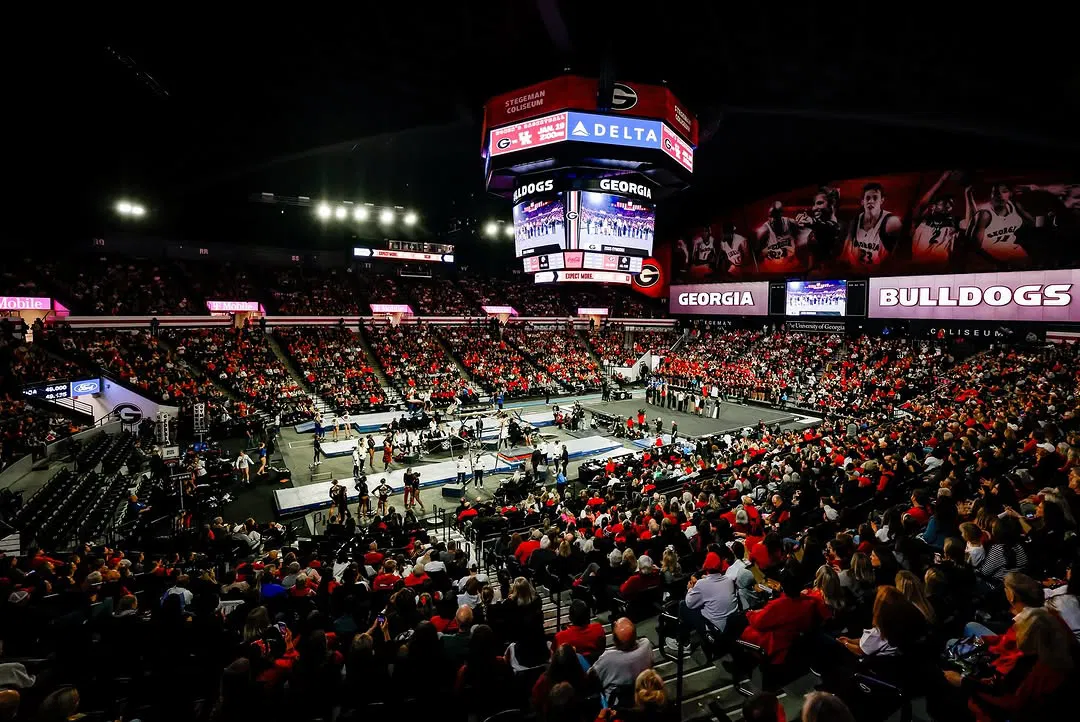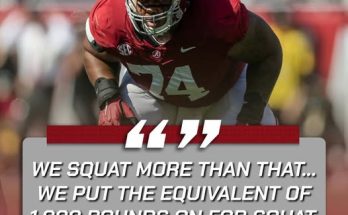NCAA Gymnastics Fans Finally Support Judges in Georgia Bulldogs’ Decision After Constantly Opposing It
For years, NCAA gymnastics has been a battleground of debate, with fans, coaches, and athletes questioning the fairness of scoring and the consistency of judging. The sport’s subjective nature has led to persistent criticism, especially when scoring disparities influence competition outcomes. However, a recent shift in fan sentiment has emerged following the University of Georgia’s decision to part ways with head coach Courtney Kupets Carter. Once highly skeptical of judging, a significant portion of the gymnastics community now finds itself in rare agreement with the judging process, recognizing that the program’s struggles were not merely a result of biased scoring but of deeper internal challenges.
The Historical Controversy of NCAA Gymnastics Judging
Gymnastics, by nature, is a subjective sport, and NCAA gymnastics is no exception. Unlike sports with objective scoring methods, gymnastics relies on human judges to evaluate performances, often leading to disagreements over scores. The perception of bias—whether towards powerhouse programs, conference allegiances, or high-profile gymnasts—has fueled widespread criticism.
Over the past decade, fans have consistently accused NCAA judges of favoring certain schools, particularly those in the Southeastern Conference (SEC), over others. In many cases, gymnasts have received perfect 10s for routines that, upon closer scrutiny, contained visible errors. The 2023 season, for example, saw UCLA’s Jordan Chiles achieve a perfect 10 on floor exercise, prompting frustration from fans who believed similar performances in non-SEC conferences were being undervalued.
Even gymnasts themselves have acknowledged the inconsistencies. UCLA’s Selena Harris, a standout freshman in 2023, openly stated, “If we were in the SEC, we would have had a couple of 10s,” highlighting the frustration that many athletes and fans felt about regional scoring discrepancies.
Georgia Gymnastics’ Struggles Under Courtney Kupets Carter
When Courtney Kupets Carter was hired as Georgia’s head coach in 2017, expectations were sky-high. A former collegiate superstar, Kupets Carter led the GymDogs to multiple national championships during her competitive career. However, translating her success as an athlete into coaching success proved challenging.
Under Kupets Carter, Georgia consistently underperformed. The once-dominant program failed to reclaim its place among the NCAA’s elite, finishing last in the SEC Championships for three consecutive years and failing to qualify for the NCAA Championships since 2019. The 2024 season was particularly disheartening, with Georgia finishing with a 7-12 record and an abysmal 1-6 standing in the SEC regular season.
For years, GymDogs fans blamed judging inconsistencies for their team’s shortcomings, claiming that Georgia was not receiving fair scores. Many believed that the team’s routines were being undervalued, pointing to the frequent discrepancies between Georgia’s home scores and their road scores as evidence of systemic bias.
The Decision to Move On
Following another disappointing season in 2024, Georgia’s athletic director, Josh Brooks, made the difficult decision to part ways with Kupets Carter. In an official statement, Brooks acknowledged the challenge of the decision, saying, “These are always difficult decisions, but this one was especially tough because of what Courtney and her family mean to the University of Georgia.”
While the move was initially met with mixed reactions, many fans began to reconsider their previous stance on judging. Instead of blaming the judges for Georgia’s struggles, they started to recognize that the program’s issues extended beyond scoring discrepancies. Poor recruiting, inadequate athlete development, and an inability to compete with other top programs all contributed to Georgia’s downfall.
A Shift in Fan Perspective
For the first time in years, NCAA gymnastics fans—particularly those who supported Georgia—found themselves aligning with the judging community. The realization that the GymDogs’ struggles stemmed from internal problems rather than external biases led to a shift in how fans viewed the sport’s scoring system.
The change in perspective was further reinforced by new voices within the gymnastics community. Cecile Landi, an esteemed coach and newly appointed co-head coach at Georgia, openly criticized NCAA judging inconsistencies but also emphasized the importance of internal accountability. “We can’t keep blaming the judges. We have to look at our training, our execution, and our consistency,” she stated in a recent interview.
For years, fans had used judging as a scapegoat for their team’s struggles. Now, with the reality of Georgia’s decline made clear, they were forced to acknowledge the truth—while judging inconsistencies still existed, they were not the primary reason for Georgia’s failures.
The Impact on NCAA Gymnastics
The shift in fan sentiment has broader implications for NCAA gymnastics. As more fans recognize the importance of program accountability, discussions around judging are becoming more constructive. Instead of simply accusing judges of bias, conversations are now focused on finding solutions to improve the sport’s scoring system while also emphasizing the need for teams to earn their success through strong performances.
1. Greater Advocacy for Fair Judging: With fans acknowledging that scoring issues exist but are not the sole determinant of success, there is a stronger push for standardized judging criteria. Many are calling for clearer rules and better training for judges to ensure more consistency in scoring.
2. Increased Pressure on Programs to Perform: As fans become more aware of the importance of internal factors, there is greater pressure on coaching staffs to deliver results. Programs can no longer rely on blaming external factors; they must invest in better coaching, training facilities, and athlete development.
3. More Informed Fanbase: The discourse around judging is becoming more nuanced. Fans are learning more about the complexities of the scoring process and are engaging in more meaningful discussions about the sport’s future.
Looking Ahead: The Future of Georgia Gymnastics
With Kupets Carter’s departure, Georgia has an opportunity to rebuild. The hiring of Cecile Landi and Laurent Landi, two of the most respected coaches in elite gymnastics, signals a new era for the GymDogs. Known for coaching Olympic champions Simone Biles and Sunisa Lee, the Landis bring a level of expertise that could propel Georgia back to national prominence.
While coaching alone won’t solve all of Georgia’s problems, the renewed focus on internal growth rather than external blame is a positive step forward. The program must prioritize athlete development, strategic recruiting, and a culture of accountability to regain its elite status.
The evolution of fan sentiment in NCAA gymnastics marks a significant shift in how the sport is perceived. For years, fans resisted acknowledging the role of internal factors in their teams’ struggles, instead blaming judges for unfavorable outcomes. However, Georgia’s recent coaching change has served as a wake-up call, prompting fans to recognize the deeper issues at play.
As the gymnastics community moves forward, this newfound alignment between fans and judges could lead to positive changes for the sport. By advocating for both fair judging and internal accountability, fans can contribute to a more competitive and credible NCAA gymnastics landscape. Georgia’s journey serves as a reminder that while judging inconsistencies exist, true success is earned through excellence—not excuses.



